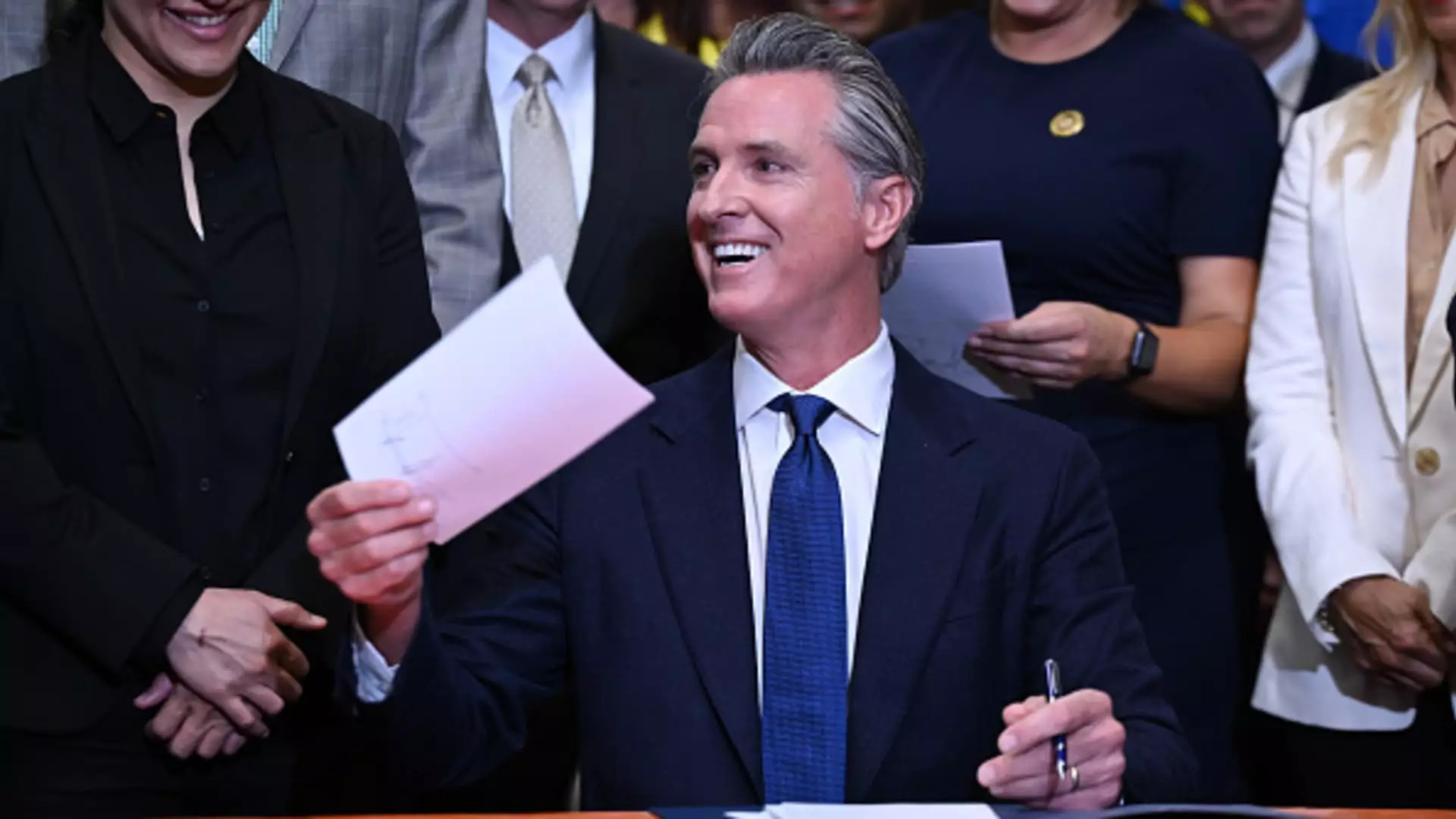California Governor Gavin Newsom recently signed 10 new bills into law with the intention of cracking down on retail crime in the state. The package of new laws was announced on Friday and includes measures to address shoplifting, theft from vehicles, organized theft, and the resale of stolen goods on online marketplaces. These laws come in response to increased concerns from retailers who have been calling for more government intervention to combat retail theft, which has been impacting their profits, customer base, and staff morale.
One of the key bills in the package, SB 1416, was introduced to establish stricter penalties for middlemen involved in organized retail crime rings. The bill, initiated by State Sen. Josh Newman, was a result of a CNBC investigation that shed light on the operations of such crime rings. Prior to the new law, individuals connected to these crime rings faced up to three years in prison, which critics argued was not a strong enough deterrent. The new law aims to target individuals like Michelle Mack, a notorious figure in organized retail crime who made millions reselling stolen goods on platforms like Amazon. Mack and her husband received significant prison sentences and were ordered to pay substantial restitution to retailers they had defrauded.
Retailers have been vocal about the negative effects of organized retail crime on their businesses, citing lower profits, difficulty in hiring and retaining staff, and a decrease in the overall in-store experience. The rise in commercial burglary and robbery rates in California, as well as the increase in shoplifting incidents, have added to the urgency of addressing retail crime. Data from the Public Policy Institute of California shows a steady increase in these types of crimes in recent years.
Law enforcement agencies like the California Highway Patrol’s Organized Retail Crime Task Force have been actively working to address retail theft. Since the beginning of the year, this task force has made numerous arrests and recovered a significant amount of stolen goods, highlighting the scale of the issue. Retailers have been lobbying for stricter laws at the federal level, with organizations like the National Retail Federation pushing for theft to be prosecuted as a federal felony.
While there is a growing consensus on the need to combat retail crime, there are concerns about the potential impact of these measures on marginalized groups. Critics fear that harsh penalties and increased enforcement may disproportionately affect vulnerable populations. Additionally, there is a debate about the effectiveness of these laws in addressing the root causes of retail crime and whether operational issues within the industry are being adequately addressed.
Another bill in the new package of laws, SB 1144, focuses on preventing the trafficking of stolen goods on online platforms such as Amazon. Introduced by State Sen. Nancy Skinner, this bill aims to update compliance criteria for high-volume sellers and streamline the process of filing civil charges against online marketplaces selling stolen goods. By targeting the online resale of stolen goods, this law seeks to disrupt the flow of illegally obtained products in the digital space.
The new laws signed by Governor Newsom reflect a broader effort to tackle retail crime in California. By addressing various aspects of theft, resale, and online trafficking, these laws aim to create a more secure environment for retailers and customers alike. However, ongoing monitoring and evaluation will be essential to measure the impact of these laws and ensure that they are achieving their intended goals while also considering the potential consequences for all members of society.


Leave a Reply